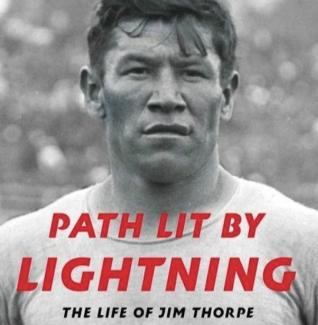Letters: Jim Thorpe, Avery Brundage, Sugarloaf T-bars

Justice Served: Jim Thorpe’s 1912 Gold Medals Restored
In my article “Pro vs. Am” (July-August 2022), I discussed the historic conflict between the concepts of amateurism and professionalism in skiing and Olympic sports. The most tragic victim of this conflict was Jim Thorpe, who won two gold medals in the 1912 Olympic Games in the decathlon and pentathlon, two of the most difficult of all sporting events.
Thorpe dominated the 1912 Olympic Games, with Swedish King Gustav V telling him at the medal ceremonies, “Sir, you are the greatest athlete in the world.” However, Thorpe had earned $25 a week while playing semi-professional baseball before his Olympic career, and in 1913, he was stripped of both medals by the International Olympic Committee (IOC) under the era’s strict rules governing amateurism. Historians consider this action to be a combination of racism against Thorpe, who was Native American, and a rigid adherence to the idea of amateurism.
In 1982, the IOC partially restored Thorpe’s 1912 successes by declaring him co-winner of the two medals. But that partial victory is now complete. In July, the IOC announced that Thorpe is now officially recognized as the sole winner of the decathlon and pentathlon at the 1912 Stockholm Games, while the two athletes who received the medals after they were stripped from Thorpe will be recognized as co-silver medalists of their events. When Thorpe died in 1953, the New York Times called him “probably the greatest natural athlete the world had seen in modern times.”
John W. Lundin
Seattle, Washington

competed with Jim Thorpe, and
lost.
Amateur Athletes? Hardly
John Lundin (“Pro vs. Am,” July-August 2022) is right to point out Avery Brundage’s hypocritical stands on amateurism in Olympic competition. But Brundage’s hypocrisy went beyond the unfortunate examples Lundin cites. Even though most Soviet Union and Soviet Bloc Olympians (and other top athletes) were supported by their governments, Brundage saw no problem in their participation in the Olympics. The value of that government support far exceeded the value of prizes or endorsements that led Brundage to disqualify famous athletes such as Karl Schranz. Athletes from the Soviet Union and the states it dominated were often paid by the military or other state institutions without having to do much other than train and compete. Some amateurs!
Ivo Krupka
Former President
Canadian Ski Hall of Fame and Museum
Ottawa, Canad
T-Bar Timeline
I have a correction to make about the Sugarloaf poster in the “Many Gems at Swann’s Winter Auction” (May-June 2022). Those are all T-bars, not chairlifts, on the poster. The poster was created later than 1955. The lower of the tandem T-bars was built in the summer of 1956; the upper T-bar was built the next summer. The lower left T-bar was built later. 
Jean Luce
Carrabassett Valley, Maine
Correction
Due to an editing error, we reported in the July-August issue that Hedda Bernsten and her husband, Tyler Conrad, spend summers in New England. In fact, they live near the ski resort of Hemsedal, Norway, in the winter and in coastal Tønsberg, in the summer.